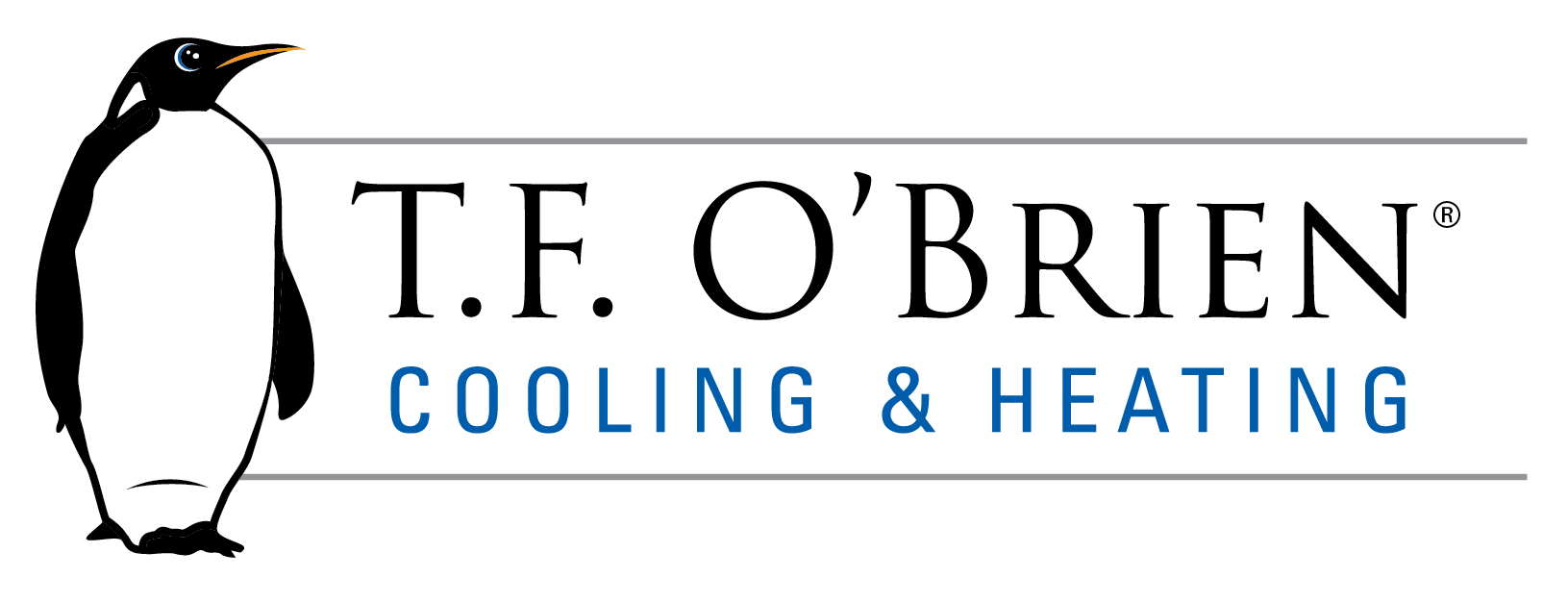 Now that the summer season is fast approaching, you might be thinking about ways to keep certain areas of your home cool and comfortable, especially spaces where you might be using window or portable air conditioning. Maybe you have a bonus room or a home theatre you’d like to get more use out of this summer, or maybe your summer home could benefit from a cooling system.
Now that the summer season is fast approaching, you might be thinking about ways to keep certain areas of your home cool and comfortable, especially spaces where you might be using window or portable air conditioning. Maybe you have a bonus room or a home theatre you’d like to get more use out of this summer, or maybe your summer home could benefit from a cooling system.
A great solution to your cooling conundrums can be ductless air conditioning. A ductless cooling system offers many benefits, especially when compared to window air conditioning units, and can be easily installed in your home. In this article, we’ll talk about some of the benefits of choosing ductless, and we’ll tell you how we can help you with your ductless needs. Keep reading to learn more!
5 Benefits of Ductless Air Conditioning
Ductless systems have become a popular way to cool spaces or entire homes, that do not have ductwork. Homes that have radiant heating systems often were not built with ductwork, nor with the wall space to add it. In the past, people who owned these types of homes were limited when it came to cooling options. Ductless systems offer a much better cooling option over window air conditioning, and here are a few reasons why:
- Ductless AC is highly efficient. Because ductless systems often use heat pump technology, they provide one of the most efficient cooling options, with many ductless systems using up to 40 percent less energy than a typical window unit. And that means savings on your utility bills!
- Ductless systems are non-intrusive. Anyone who has used window air conditioners knows that they tend to be noisy and obstruct the view. That can be a huge drawback in some situations, like if you have a summer home overlooking the ocean! Ductless systems are installed high on the wall or in the ceiling, keeping them out of your immediate living space.
- Installation is permanent and usually can be completed quickly. Unlike a window unit that you must remove and store over the winter, a ductless system is a permanent installation in your home. Renovation is minimal; generally, only a small hole is required to connect the indoor and outdoor unit components.
- Ductless air conditioning is quiet. As mentioned above, most people find that ductless systems are whisper-quiet, unlike most window units. This means you can use them in spaces like bedrooms, theatre rooms, and home offices – and you won’t have to worry about noisy, disruptive system operation.
- You can even get year-round comfort. That’s right! Ductless systems often can provide heating in cooler weather, too, making them especially beneficial in areas where you might have had to rely on space heaters, which can take up floor space and can cause a fire hazard. And, because they use the same heat pump technology to keep your home warm, you can count on efficient heating as well.
How can T.F. O’Brien help me get the ductless cooling I need?
At T.F. O’Brien, we take great pride in our expert installation of ductless cooling and heating systems. We can help you find the right ductless system for your home, and our experienced technicians can install it for you quickly and professionally. And, we can provide you with additional services, like ductless maintenance and repair.
If you think ductless might be a great choice for your home, T.F. O’Brien can help. We have ductless equipment on hand and can likely install it in your home right away! Give us a call at 516.488.1800, and we’ll be happy to schedule an appointment with you.

 April showers bring May flowers, and May flowers bring more than Pilgrims – they bring lots and lots of pollen. It’s easy to enjoy the bright, beautiful blooms of spring when you don’t suffer from seasonal allergies, but if you do, you know springtime also means sniffling, sneezing, itchy eyes, and congestion. While we’d love to be able to help our customers breathe easier outdoors during these high-pollen months, we can’t – but, we can help them keep the air clear inside.
April showers bring May flowers, and May flowers bring more than Pilgrims – they bring lots and lots of pollen. It’s easy to enjoy the bright, beautiful blooms of spring when you don’t suffer from seasonal allergies, but if you do, you know springtime also means sniffling, sneezing, itchy eyes, and congestion. While we’d love to be able to help our customers breathe easier outdoors during these high-pollen months, we can’t – but, we can help them keep the air clear inside. Once spring arrives, people start to think about sunny days, blossoming trees, and blooming flowers. While this is a beautiful time of year for many, it can also be uncomfortable for those with seasonal allergies. Pollen counts are on the rise, and mold growth is prompted by rain and warmer weather. Unfortunately, there isn’t a lot you can do about the air outside this time of year.
Once spring arrives, people start to think about sunny days, blossoming trees, and blooming flowers. While this is a beautiful time of year for many, it can also be uncomfortable for those with seasonal allergies. Pollen counts are on the rise, and mold growth is prompted by rain and warmer weather. Unfortunately, there isn’t a lot you can do about the air outside this time of year. For all of us, the quality of the air we breathe every day is important. Air that contains particulates and contaminants can cause the respiratory system to become irritated, which can lead to a feeling of discomfort or even illness. Even if a person has healthy lungs, if they are exposed to prolonged poor indoor air quality (or IAQ) they can become ill, according to the
For all of us, the quality of the air we breathe every day is important. Air that contains particulates and contaminants can cause the respiratory system to become irritated, which can lead to a feeling of discomfort or even illness. Even if a person has healthy lungs, if they are exposed to prolonged poor indoor air quality (or IAQ) they can become ill, according to the  As the winter months roll in here on Long Island, many people are spending more time indoors. Keeping cozy in a warm, comfortable home is always welcome. Sometimes, however, the air in our homes can become less hospitable during the colder months. There are many factors that can contribute to poor indoor air quality, or IAQ, during the winter.
As the winter months roll in here on Long Island, many people are spending more time indoors. Keeping cozy in a warm, comfortable home is always welcome. Sometimes, however, the air in our homes can become less hospitable during the colder months. There are many factors that can contribute to poor indoor air quality, or IAQ, during the winter. For most homeowners, a healthy home environment is essential. Having a home heating and cooling system that operates properly is one of the primary ways homeowners can keep their homes comfortable and safe, but some homes need a little help regarding indoor air quality or IAQ. This can be especially true during the winter months when heating systems are running frequently and there is little fresh air being introduced into the home.
For most homeowners, a healthy home environment is essential. Having a home heating and cooling system that operates properly is one of the primary ways homeowners can keep their homes comfortable and safe, but some homes need a little help regarding indoor air quality or IAQ. This can be especially true during the winter months when heating systems are running frequently and there is little fresh air being introduced into the home. Now that the cooler weather has returned, you’re probably gearing up for this year’s heating season in your home. Whether you have a
Now that the cooler weather has returned, you’re probably gearing up for this year’s heating season in your home. Whether you have a  It’s that spooky time of year again, and pretty soon our neighborhoods will be full of pumpkins, fall decorations, and trick-or-treaters. While the autumn season is definitely fun-filled, it’s also a time to think about the cooler weather ahead. That might include getting your lawn and garden prepared for chillier weather, making sure your home is draft-free and maintaining your home’s heating system.
It’s that spooky time of year again, and pretty soon our neighborhoods will be full of pumpkins, fall decorations, and trick-or-treaters. While the autumn season is definitely fun-filled, it’s also a time to think about the cooler weather ahead. That might include getting your lawn and garden prepared for chillier weather, making sure your home is draft-free and maintaining your home’s heating system. As the summer months end and the fall season arrives, many people start to think about everything autumn has to offer. Changing leaves, pumpkin patches, hayrides… and fall allergy season. While the fall season is definitely a beautiful time of year, it can also be a (literal) headache for people with allergies.
As the summer months end and the fall season arrives, many people start to think about everything autumn has to offer. Changing leaves, pumpkin patches, hayrides… and fall allergy season. While the fall season is definitely a beautiful time of year, it can also be a (literal) headache for people with allergies. During the summer months, your air conditioner works hard to keep your home cool and keep the humidity down. Because it has to work overtime, sometimes problems can spring up. Many times, it’s because the air filter on your system has become clogged and dirty. When your AC is running frequently, it’s important to check the filter regularly – and change it out or clean it if you notice it has become dirty. If this isn’t the problem, it could mean your system needs repair.
During the summer months, your air conditioner works hard to keep your home cool and keep the humidity down. Because it has to work overtime, sometimes problems can spring up. Many times, it’s because the air filter on your system has become clogged and dirty. When your AC is running frequently, it’s important to check the filter regularly – and change it out or clean it if you notice it has become dirty. If this isn’t the problem, it could mean your system needs repair.